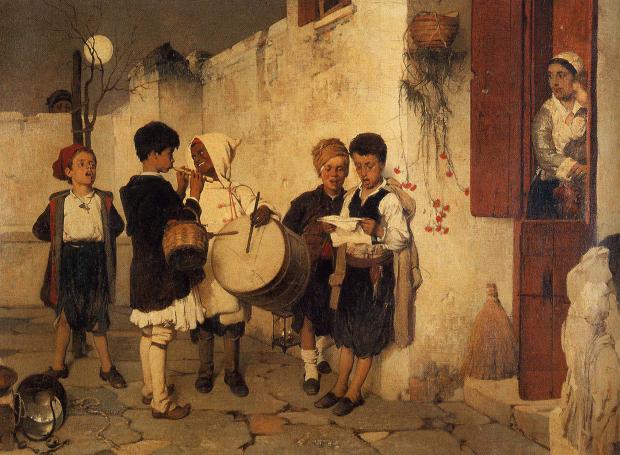The sound of children’s voices singing the Kalanda fills the air in Greece each Christmas Eve, a tradition deeply woven into the fabric of Greek culture.
These carols, also performed on New Year’s Eve and Epiphany Eve, are more than just songs; they are a centuries-old expression of joy, hope, and peace.

Children travel from house to house, often playing triangles, drums, and other instruments as they sing. They politely ask at each door, “Na ta poume?” (“Shall we sing?”), and upon receiving an affirmative response, they share their festive melodies. As a token of appreciation, homeowners often offer traditional Greek Christmas treats such as melomakarona and kourabiedes, and sometimes a small gift of money.
*Watch and listen to them here-
The roots of the Kalanda extend far back into history. During the Byzantine era, children carried miniature boats while singing hymns to Dionysius. The custom of honouring the head of the household can be traced back to Ancient Greece, where olive branches, symbols of prosperity, were presented along with songs dedicated to the gods. This rich history makes the Kalanda a powerful link to Greece’s past, continuing to bring communities together during the holiday season.
Xronia Polla!
Read about the Christmas traditions Greece






